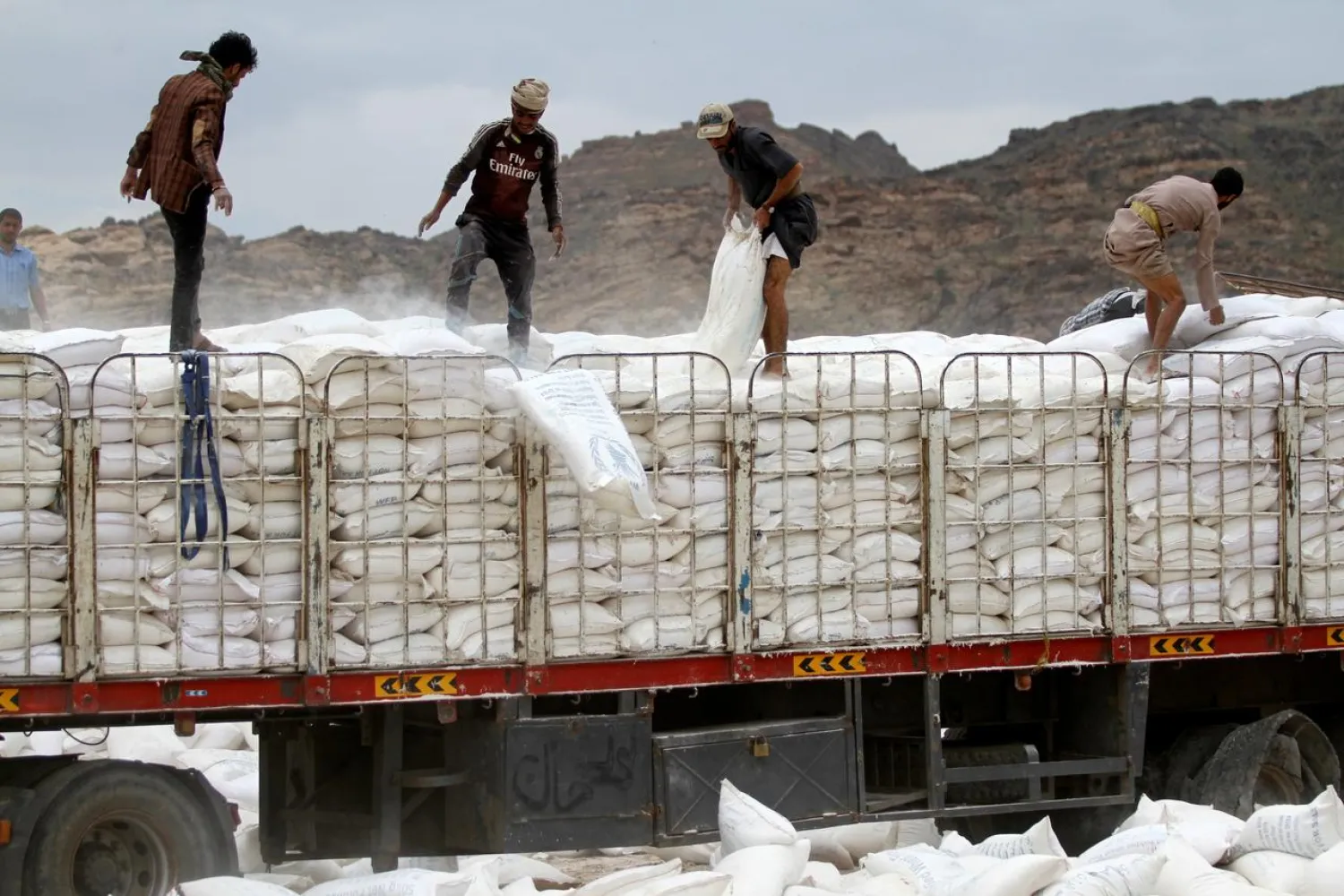The recent power struggle among the Iran-backed Houthis has, for the first time, threatened to reach the top leaders of the militias.
Informed sources in Sanaa told Asharq Al-Awsat that divisions have emerged among high ranking Houthis over the distribution of looted humanitarian aid, as well as levies imposed on the people.
Sources close to the Houthis have revealed that the brother of the militias’ leader, Yehya Badreddine al-Houthi, has stopped performing his duties as the education minister in the unrecognized Houthi government for some four months now.
They explained that disputes had erupted between him and head of the Houthis’ so-called higher council for the coordination of humanitarian affairs, Abdulmohsen al-Taous, and director of the coup ruling council, Ahmed Hamed. The disputes revolve around the distribution of humanitarian aid, which was originally delivered by United Nations agencies to the Yemeni people, but looted by the militias.
The sources said Yehya had returned to native Saada in wake of his acknowledgment in February of the Houthis’ corruption and looting of food relief. In Saada, he met his brother, Abdulmalek al-Houthi, the militias’ leader, in an attempt to win over his support against Taous and Hamed, but to no avail. Abdulmalek believed that siding with his brother would be an admission of the corruption among the militias, which would only serve their opponents.
In wake of this position, Yehya refused to resume his duties as minister and opted to remain at his home in Saada, said the sources. Moreover, they revealed that several Houthi officials had attempted to persuade him to return to his post, but failed.
Yehya, said the sources, is among the official most suspected of corruption and involvement in looting of humanitarian relief. They added that his insistence on remaining in Saada is just for show and an attempt to portray himself as an honest individual.
In a separate development, the Houthis’ so-called interior minister Abdulkarim al-Houthi, who is also Abdulmalek’s uncle, has tightened his grip over security agencies under his control in Sanaa in an attempt to eliminate all of his rivals.
Sources in Sanaa told Asharq Al-Awsat that a strong dispute erupted between Abdulkarim and Abdulmalek over the levies imposed by the Houthis on the people. Abdulkarim is accused of monopolizing the levies and refusing to share them.
Annoyed by the accusations and critical of how Abdulmalek issues his orders while laying low in the caves of Saada, Abdulkarim has sought to take decisions that favor his loyalists and shun his nephew’s supporters.
For the past two months, Abdulkarim introduced 44 changes in the positions of security chiefs in various provinces where he has appointed his loyalists to top posts, revealed the sources.
They interpreted his moves as a sign that he seeks to expand his power and lie in wait for the right moment to take out all rivals so that he alone can rule.









